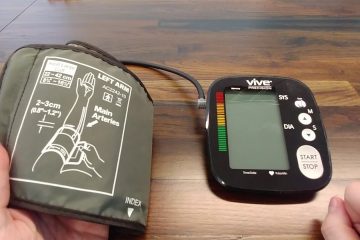EVERYTHING YOU NEED TO KNOW ABOUT ACNE TREATMENT

Acne is an extremely common skin condition that affects countless people around the world. It characteristically causes pimples on the face and the forehead. Pimples may also appear on the chest, shoulders, and upper back.
What Causes Acne
Acne takes root in the oil glands of the skin. When sebum from the oil glands travels up to the skin, it blocks the pores in combination with hair, bacteria, and dead skin cells. These pore blockages produce different types of pimples, including nodules, blackheads, and whiteheads.
While the causes and risk factors of acne are debated, the following factors are known to contribute to the skin condition:
- Hormones: Increase in hormones during puberty causes acne. These hormones enlarge the oil glands and send them into overdrive. Acne is also caused by hormone changes during pregnancy or related to contraceptive pills.
- Genetics: Research shows that one is more likely to develop acne if their parents have had the same tendency.
- Stress: While it hasn’t been confirmed that stress causes acne, some studies show that stress can exacerbate the condition and worsen outbreaks in people already suffering from acne.
- Drugs: Some drugs are known to cause acne, including greasy cosmetic products.
- Squeezing: Squeezing, rubbing, or popping pimples caused by acne can flare up and worsen the outbreak, in addition to causing acne marks and blemishes.
- Skin irritants: Skin irritants such as pollution and high humidity, while they do not cause acne directly, can lead to flare-ups.
Diagnosis and acne treatment
Regardless of its cause, suffering from acne can be quite distressing and harm an individual’s self-image. Therefore, it is wise to get diagnosed and receive consistent acne treatment from the beginning to manage and eliminate the condition.
Acne is best diagnosed by special skin doctors or dermatologists who perform a thorough skin exam. In addition, family history of acne and general stress conditions of the individual are taken into consideration.
A diagnosis is followed by treatment. Several acne treatment options are available and prescribed depending on the skin type, nature, and cause of the condition. Direct treatments of acne aim to inhibit sebum production in oil glands, prevent bacterial growth and cause skin cells to shed and unclog pores.
There are several non-prescriptions acne treatments that a skin doctor may recommend for mild to moderate cases of acne. These acne treatments include:
- Face cleansers that contain benzoyl peroxide, glycolic acid, salicylic acid, or sulfur help alleviate acne symptoms.
- Gentle face wash with soap and water can help manage acne. It can’t eliminate an existing outbreak but helps prevent a flare-up.
- Non-prescription drugs with Benzoyl peroxide help destroy bacteria and limit bacterial growth that causes acne. However, these drugs do not permanently cure acne, which will return once treatment is stopped.
- Salicylic acid is a widespread acne treatment that targets the shedding of skin cells and unclogging pores. Like benzoyl peroxide, creams, ointments, and lotions containing salicylic acid must be used continuously to remain effective in keeping acne at bay.
- Sulfur is a common component used alongside salicylic acid in acne treatment It helps unclog pores.
- Retinol medication in creams or gels prevents pimple formation and unclogs pores by increasing the shedding of skin cells.
- Several herbal and organic medications are available that some claim prevent acne and alleviate acne symptoms. However, their effectiveness is not scientifically proven.
To treat more severe cases of acne, skin doctors may recommend the following prescription treatments:
- Antibiotics that are either taken orally or applied on the skin are prescribed to kill excess bacteria on the skin and reduce inflammation. These antibiotics are often prescribed in combination with benzoyl peroxide and retinoid medication.
- Retinoid drugs contain retinoic acid, which prevents the blockage of hair follicles. These drugs come in the form of creams, gels, and lotions that should be applied at night. However, retinoid medication has specific side effects, such as increased sun sensitivity, dry skin, and redness.
- Azelaic acid is a natural acid produced by a type of yeast and contains antibacterial properties. Prescription azelaic acid medication is most commonly used during pregnancy. It is also used sometimes to manage skin discolouration caused by acne.
- Dapsone gels treat acne characterized by inflammation, especially in women.
- Anti-androgen agents such as spironolactone are sometimes prescribed to women and adolescent girls with acne. They work by stopping androgen from affecting the oil glands under the skin. Side effects of anti-androgen agents include breast tenderness and painful periods.
- Isotretinoin is a last resort for people with severe forms of acne which are not responding to other treatments.
If medication fails, your skin doctor may opt to treat your acne with one of the following in-clinic therapies:
- Laser therapy is primarily used to treat acne scars. During laser therapy, a laser is directed at the affected area to apply heat to the scarred collagen under the skin. This encourages the growth of new skin cells and promotes collagen production.
- Chemical peels are used to remove the top and the oldest layer of the skin to allow for new skin to grow.
- Steroid injections may be used in rare cases to treat severe acne by reducing inflammation in large nodules.
It is always best to visit a skin doctor at the earliest to get a proper acne diagnosis and receive timely and appropriate acne treatment for your case.









